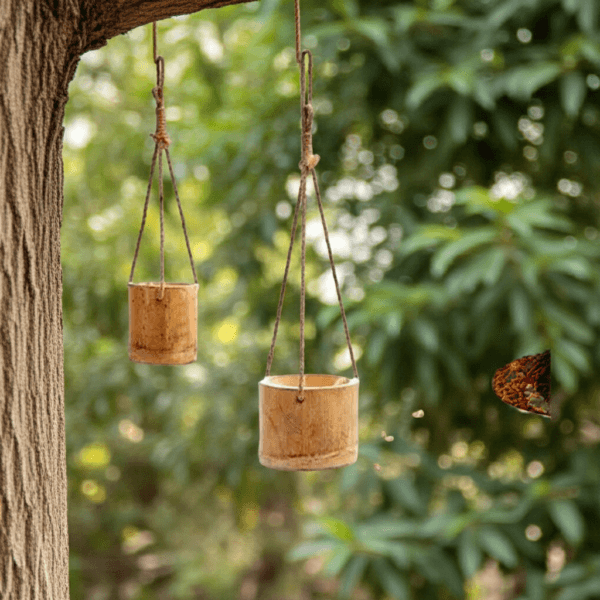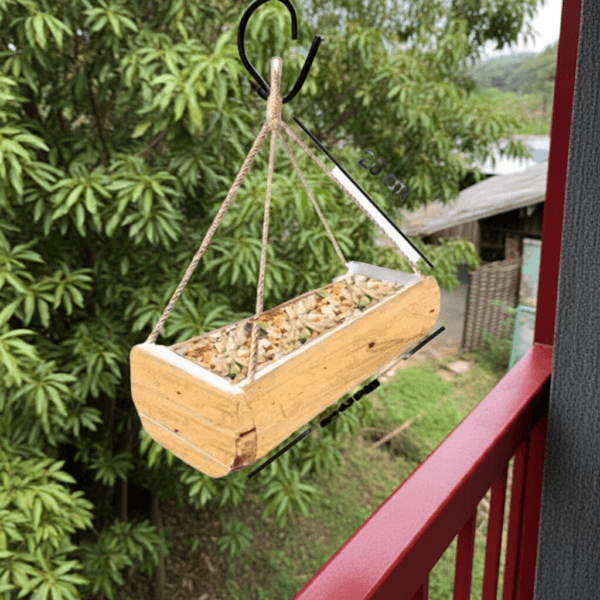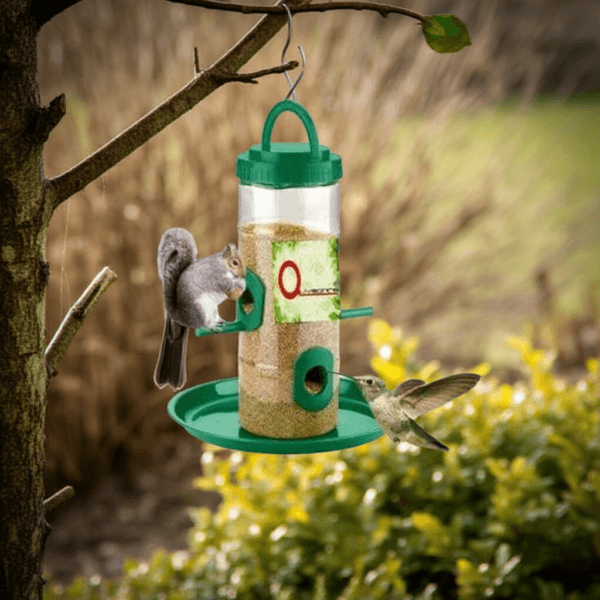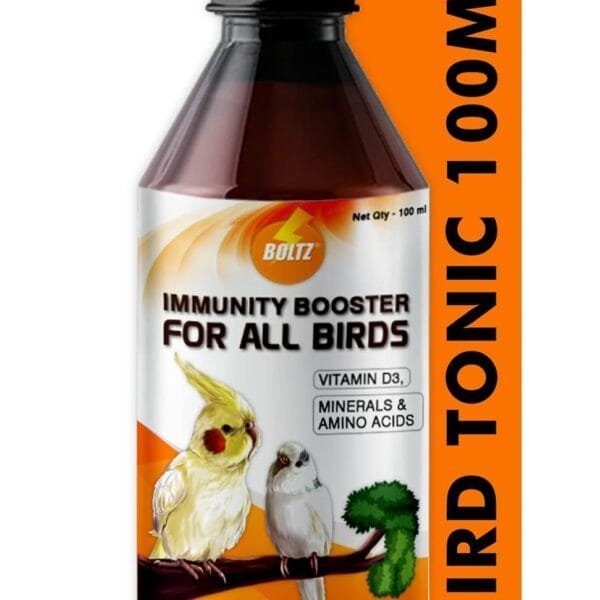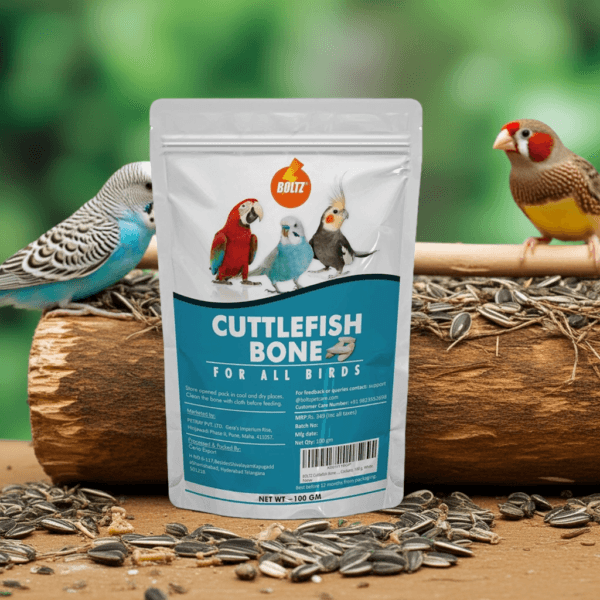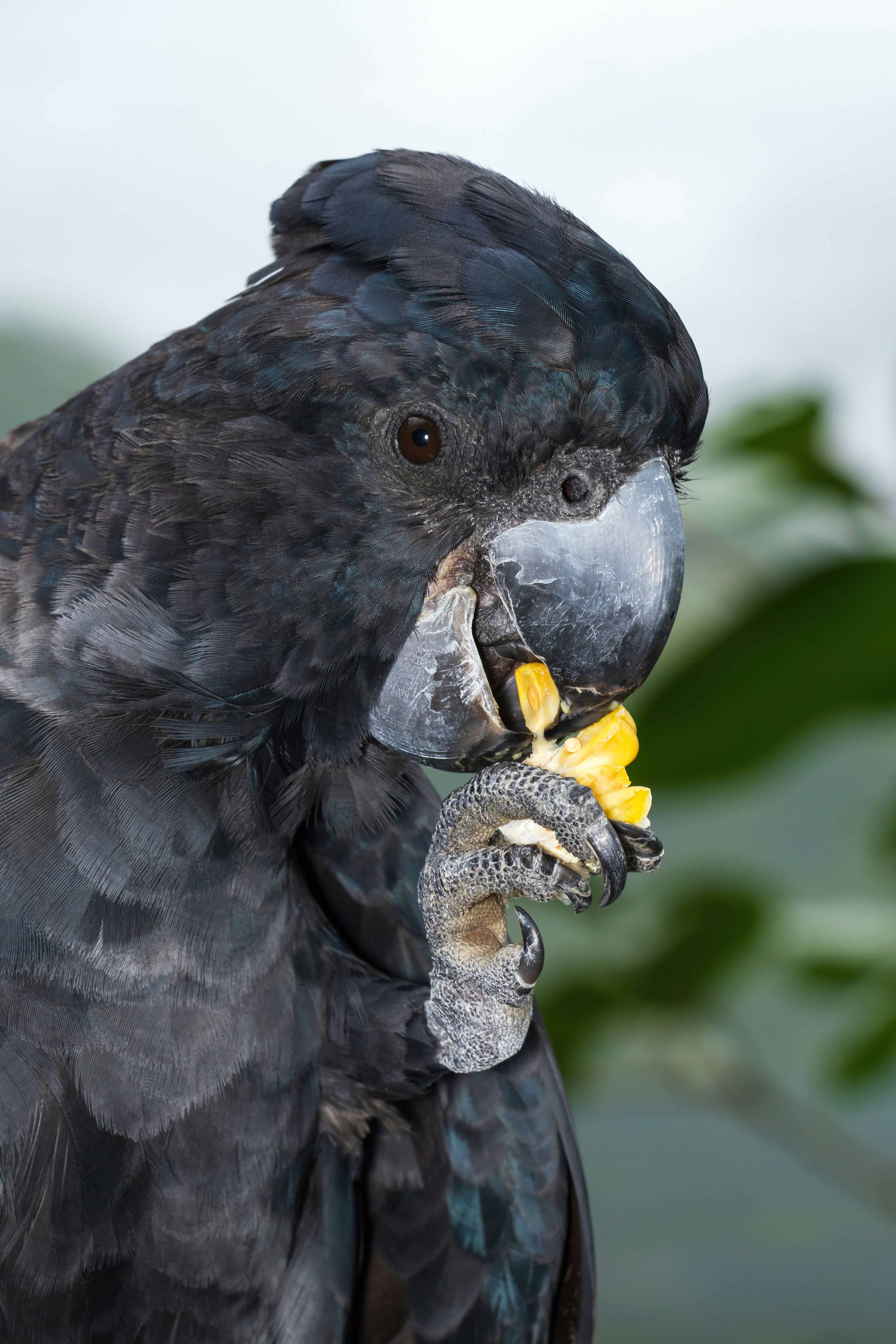
Understanding Parrot Nutrition
Table of Contents
Parrots are highly intelligent and social birds that require a balanced diet to thrive both physically and mentally. Just like humans, parrots benefit from a varied diet that includes all essential nutrients. Understanding the nutritional needs of parrots is key to ensuring their health and well-being, which can significantly impact their behavior and lifespan.
The primary macronutrients required in the diet of parrots include proteins, carbohydrates, and fats. Proteins are essential for growth, feather development, and overall bodily functions. Parrots obtain proteins from sources such as seeds, nuts, legumes, and vegetables. Carbohydrates provide energy necessary for daily activities and bodily processes. Fruits, grains, and certain vegetables are excellent sources of carbohydrates that are easily digestible for parrots. It is also crucial to include healthy fats in their diet, which aid in maintaining good skin and feather condition. Nuts and seeds contain beneficial fats, but they should be provided in moderation due to their high caloric content.
Alongside macronutrients, vitamins and minerals play a pivotal role in the overall health of parrots. Vitamin A is vital for vision and immune function, while Vitamin D is necessary for calcium absorption, which is critical for strong bones. Minerals such as calcium and phosphorus should be included to support various physiological functions, including muscle contraction and nerve signaling. Parrots also require trace minerals like zinc and selenium to ensure metabolic processes function smoothly.
A well-rounded diet that includes pellets, fresh fruits, vegetables, and occasional seeds can help meet these nutritional requirements. Ensuring the right balance of nutrients can lead to improved physical condition, enhanced behavior, and a longer lifespan for parrots. Proper nutrition is not just about feeding; it encompasses understanding the unique needs of each parrot species and adjusting their diets accordingly.
Types of Parrot Food Available
When it comes to nourishing your parrot, it is essential to understand the variety of food options available, each with its own benefits and drawbacks. The main categories of parrot food include pellets, seeds, fresh fruits and vegetables, nuts, and commercial mix diets, all of which can serve different dietary needs depending on the species.
Pellets are often recommended as a primary diet for parrots. They are formulated to meet essential nutritional requirements, offering a balanced mix of vitamins, minerals, and other nutrients. The advantages of pellets include convenience and the prevention of selective eating, as parrots are less likely to pick and choose their favorite items. However, the downside is that some parrots may resist eating pellets if they are not accustomed to them, requiring a gradual transition period.
Seeds have traditionally been a staple food for many parrot species. While seeds can be appealing due to their high fat content, they should not make up the entirety of a parrot’s diet. Seeds alone can lead to nutritional imbalances, particularly deficiencies in vitamins and minerals. Therefore, seeds should be offered in moderation, combined with other food types for a more balanced approach.
Fresh fruits and vegetables are imperative for providing hydration, fiber, and a range of vitamins. They can create a visually appealing and nutritious addition to a parrot’s diet. However, not all fruits and vegetables are suitable, and some can be toxic to certain parrot species. Proper research is essential to ensure a safe selection.
Nuts present a good source of healthy fats and proteins for parrots but should also be offered sparingly due to their high caloric content. Commercial mix diets can vary greatly, so it is vital to select ones that are high-quality and meet specific dietary needs. Understanding these various types of food can help caregivers make informed dietary choices that enhance their parrot’s health and well-being.
Nest+ System – Digestive Comfort & Body Readiness
Support your bird’s breeding phase naturally with a calming, fertility-boosting mix of trusted Indian herbs and grains. Ideal for budgies, cockatiels, lovebirds, and finches. Gentle, clean, and made with love.
46 in stock
Creating a Balanced Diet
Providing a balanced diet is essential for maintaining the health and well-being of parrots. A well-rounded diet not only supports their physical health but also influences their behavior and longevity. It is crucial to incorporate variety in their meals to ensure they receive all the necessary nutrients. Parrots, being omnivorous, benefit from a diet comprising fresh fruits, vegetables, nuts, seeds, and formulated pellets. This combination allows for adequate intake of carbohydrates, proteins, fats, vitamins, and minerals.
Fruits such as apples, berries, and bananas can be introduced into their diet to provide essential vitamins and fiber. Meanwhile, leafy greens like spinach or kale contribute valuable nutrients and antioxidants. Instead of relying solely on seeds, which are often high in fat and low in nutritional value, pet owners should consider high-quality pellets specifically designed for parrots. These pellets are fortified with vitamins and minerals, offering a more comprehensive nutritional package.
When crafting meals, it is advisable to rotate food types regularly to prevent dietary boredom and encourage varied nutrient absorption. Additionally, sprinkling some nuts can serve as a treat or training reward rather than the primary food source due to their high-calorie content. It is also important to be mindful of the unique dietary needs of different age groups within parrot species. Young parrots, for example, require higher protein levels for growth, while elderly birds may benefit from softer foods.
Household pets may also have health nuances that require dietary adjustments, like obesity or allergies, making it necessary to consult with an avian veterinarian for personalized dietary recommendations. Ultimately, a balanced diet tailored to their unique needs can lead to happier and healthier parrots, enhancing their quality of life for years to come.
Homemade Parrot Food Recipes
Creating nutritious homemade parrot food is an excellent way to ensure your feathered friends receive a balanced diet tailored to their needs. There are several recipes available that focus on incorporating various essential nutrients, which can help maintain your parrot’s health and enhance their overall well-being.
One popular recipe is the seed mix. To create this, you will need organic seeds such as sunflower, millet, and pumpkin seeds. Combine equal parts of each seed in a mixing bowl, and to enhance the nutritional value, consider adding dehydrated herbs like parsley and dandelion greens. Store the seed mix in an airtight container in a cool, dark place to preserve its freshness.
Another nutritious option is the fruit and veggie chop. This simple recipe is ideal for providing your parrot with a variety of vitamins. Gather fresh vegetables such as carrots, bell peppers, and broccoli alongside fruits like apples and mango. Chop these ingredients into small, manageable pieces. It is essential to wash all produce thoroughly to remove any pesticides. This mix can be stored in the refrigerator for up to three days. To keep it fresh longer, consider freezing portions in ice cube trays and transferring them to a freezer bag.
A third option is cooked grain dishes. Quinoa or brown rice serves as an excellent base. Begin by cooking one cup of quinoa in two cups of water, bringing it to a boil, and then simmering it until fluffy. Once cooled, mix in chopped veggies or fruits to add flavor and variety. This dish is nutrient-dense and can last up to four days in the fridge when stored properly. Always remember to avoid certain foods like chocolate and avocado, which can be toxic to parrots.
In conclusion, providing your parrot with a diverse homemade diet through these recipes not only ensures they receive essential nutrients but also allows you to bond with your feathered companion during meal preparation.
Understanding Food Allergies and Aversions
Parrots, like many pet birds, can experience food allergies and aversions that may affect their overall health and well-being. Common allergens for parrots can include certain seeds, nuts, or even fruits and vegetables. Recognition of potential allergic reactions is crucial for maintaining a balanced diet for your feathered friends. Signs of food allergies in parrots can manifest through various symptoms. These may include changes in behavior, gastrointestinal disturbances, feather plucking, and skin irritations. In some cases, affected parrots may exhibit signs such as vomiting, diarrhea, or a general decline in activity levels.
To effectively address allergic reactions or aversions, it is important to monitor your parrot’s diet closely. Keeping a detailed food diary can assist in identifying any potential food triggers. By documenting every food item your parrot consumes and observing their behavior following each meal, you can better pinpoint any problems associated with specific ingredients. Once a food allergy or aversion has been identified, removing the problematic food from their diet is imperative. Introduce new foods gradually and one at a time, which can help in determining if the additions might trigger a reaction.
Furthermore, consulting with a veterinarian who specializes in avian health is advisable when dealing with suspected food allergies. They may recommend allergy testing or other diagnostic methods to understand your parrot’s unique dietary needs better. It’s essential to ensure that your parrot’s nutritional requirements are met, even while eliminating specific foods. This proactive approach will promote a healthy diet and help avoid complications arising from food-related sensitivities, ensuring your parrot remains vibrant and healthy.
Commercial vs. Homemade Parrot Food: Pros and Cons
When considering the diet of pet parrots, two primary options emerge: commercial parrot food and homemade alternatives. Each comes with its own set of advantages and disadvantages, which can influence a pet owner’s choice significantly.
Commercial parrot food generally offers convenience and uniformity. These products are often formulated to meet the dietary needs of specific parrot species, ensuring a balanced intake of essential nutrients, vitamins, and minerals. The consistency in commercial feeds potentially reduces the risk of nutritional deficiencies, as many reputable brands adhere to established dietary guidelines for parrots. Moreover, pre-packaged food saves time and effort, making it easier for busy owners to provide adequate nutrition without preparation.
However, one of the downsides of commercial options is that they may contain preservatives or artificial additives. Some brands may compromise quality by using lower-cost fillers which do not offer optimal health benefits for parrots. It is crucial for owners to choose high-quality products by reading labels carefully to ensure that their feathered friends receive the best possible nutrition.
In contrast, homemade parrot food allows for complete customization. Pet owners can control the quality and freshness of ingredients, which can lead to healthier meals tailored specifically to their parrot’s preferences and needs. Preparing food at home can also provide opportunities to introduce a wider variety of fruits, vegetables, and grains, creating a more vibrant diet and potentially enhancing the bird’s physical and mental well-being.
Nevertheless, the homemade approach brings its own challenges. It requires a commitment to research and preparation to ensure that meals are nutritionally complete. Inadequate diets can result in long-term health issues for parrots, as some essential nutrients may need careful attention. Therefore, while homemade food can be advantageous, it is imperative to ensure thorough knowledge of a parrot’s nutritional requirements.
Feeding Frequency and Portions
Feeding schedules and portion sizes are crucial aspects of ensuring that parrots receive adequate nutrition tailored to their specific needs. Different species of parrots, as well as their ages, influence how much food they require and how frequently they should be fed. Generally, adult parrots can be fed once or twice a day, while younger ones, especially chicks or juveniles, may need more frequent feeding sessions to support their growth and energy levels.
For instance, smaller parrot species, such as Budgerigars and Lovebirds, typically require about one to two tablespoons of food daily. On the other hand, larger species like African Grey Parrots and Macaws might need a more substantial amount, roughly a quarter to a half cup, based on their size and activity level. As a guideline, it is essential to observe each parrot’s body condition to tailor the feeding portions appropriately. Overfeeding can lead to obesity-related health issues, while underfeeding can result in malnutrition and stunted growth.
Establishing a feeding schedule plays a pivotal role in a parrot’s routine, promoting stability and well-being. Parrots are intelligent creatures and often thrive on predictability. Additionally, monitoring their weight regularly is paramount. Regular weigh-ins can help identify any fluctuations that may warrant dietary adjustments. If a parrot is gaining too much weight, it may indicate overfeeding or insufficient exercise. Conversely, weight loss may require an increase in food intake or a reassessment of dietary quality. Tailoring the feeding frequency and portions according to these factors will ensure that your parrot remains healthy and well-nourished throughout its life. A balanced diet combined with appropriate portion sizes creates the foundation for happy and vibrant feathered companions.
Toxic Foods to Avoid
Parrots, like all pets, require a balanced diet to thrive; however, many everyday foods are toxic to these colorful birds and must be completely avoided. Consuming certain items can lead to severe health complications or even death. Some of the most common foods that are toxic to parrots include chocolate, avocado, caffeine, and alcohol. Each of these items can significantly impact a parrot’s well-being.
Chocolate contains theobromine, a compound that can cause heart issues, hyperactivity, and, in serious cases, can be fatal. Avocado contains persin, which can lead to respiratory distress and sudden death in birds. Caffeine, found in coffee and certain teas, can result in increased heart rate and jitteriness, and alcohol can be detrimental, leading to liver failure and severe neurological issues.
Additionally, certain nuts, such as raw peanuts, may harbor a potential toxin called aflatoxin, which is harmful if ingested in sufficient quantities. Fruit seeds, especially those from apples and cherries, contain cyanogenic compounds that can produce cyanide when metabolized, posing a serious risk to parrots if consumed. Importantly, some vegetables, including onion and garlic, are also considered harmful, potentially leading to anemia and digestive issues.
It is crucial to recognize the signs of toxicity in parrots, which may include vomiting, lethargy, diarrhea, or sudden changes in behavior. If you suspect your parrot has ingested something toxic, immediate veterinary attention is essential. Before introducing any new foods into a parrot’s diet, thorough research is paramount to ensure safety. Consulting with an avian veterinarian can provide guidance on appropriate dietary choices and help prevent any harmful encounters with toxic foods.
Best Practices for Storing Parrot Food
Proper storage of parrot food is crucial to ensure that your feathered friends receive the maximum nutritional benefits while maintaining their health. To achieve this, understanding the best practices for storing both commercial and homemade parrot food is essential.
First and foremost, always store parrot food in a cool, dry place. Humidity can lead to the growth of mold and bacteria, which can contaminate the food and pose serious health risks to your pet. It is advisable to choose containers that are airtight. This not only prevents moisture from entering but also minimizes exposure to air, which can oxidize and degrade the nutrients in the food.
For commercial parrot food, keep in mind that these products often come in bulk packaging. After opening these bags, consider transferring the contents into a labeled, airtight container to maintain freshness. Make sure to check the expiration date on the packaging and adhere to it strictly. Rotating stock by using older food items first is another effective way to avoid spoilage.
In the case of homemade parrot food, preparation and storage need specific attention. Cool the food completely before placing it in storage containers. Glass or BPA-free plastic containers are recommended, as they are durable and help retain the food’s quality. Homemade food often has a shorter shelf life than commercial options, so it is important to store it in smaller portions to encourage rotation and minimize waste.
Lastly, always inspect stored parrot food for any signs of spoilage, such as off odors or visible mold. Quick action and proper storage techniques are crucial to ensure your parrot enjoys nutritious, safe meals every day. By following these best practices, you can protect your feathered companions from potential health issues linked to poor food storage.
What is the best diet for a parrot?
A balanced parrot diet should include:
High-quality pellets (50-60% of diet)
Fresh fruits & vegetables (20-30%)
Healthy seeds & nuts (10-20%, in moderation)
Occasional whole grains & legumes
Can parrots eat human food?
Some human foods are safe (e.g., cooked sweet potatoes, quinoa, leafy greens), but avoid avocado, chocolate, caffeine, alcohol, salty/sugary foods, and onions/garlic, as they are toxic.
How often should I feed my parrot?
Provide fresh food daily (pellets always available, fresh foods in the morning, removed after a few hours to prevent spoilage).
Are seeds bad for parrots?
Seeds are not bad but should not be the main diet—they are high in fat and lack essential nutrients. Use them as treats or supplements.
What fruits and vegetables are safe for parrots?
Safe options:
Fruits: Apples (no seeds), bananas, berries, mango, papaya
Veggies: Carrots, broccoli, spinach, bell peppers, zucchini
Avoid: Avocado, fruit pits/seeds (e.g., cherry pits), rhubarb
Do parrots need supplements?
If fed a balanced pellet-based diet with fresh foods, most parrots don’t need supplements. However, calcium (cuttlebone) or vitamin D3 may be needed for some species (consult a vet).
Can parrots drink milk?
No, parrots are lactose intolerant. Offer fresh water, herbal teas (caffeine-free), or diluted fruit juice (occasionally) instead.
Why is my parrot plucking its feathers? Could diet be the cause?
Feather plucking can result from nutritional deficiencies (e.g., lack of protein, vitamins A & E, or omega fatty acids). Ensure a balanced diet and consult an avian vet.
How do I transition my parrot from seeds to pellets?
Mix pellets with seeds, gradually increasing pellet ratio over 2-4 weeks. Try different pellet shapes/flavors and offer moistened pellets for easier acceptance.
What are signs of poor nutrition in parrots?
Watch for:
Dull/flaky feathers
Weight loss or obesity
Lethargy or weakness
Beak/muscle deformities
Frequent illnesses

